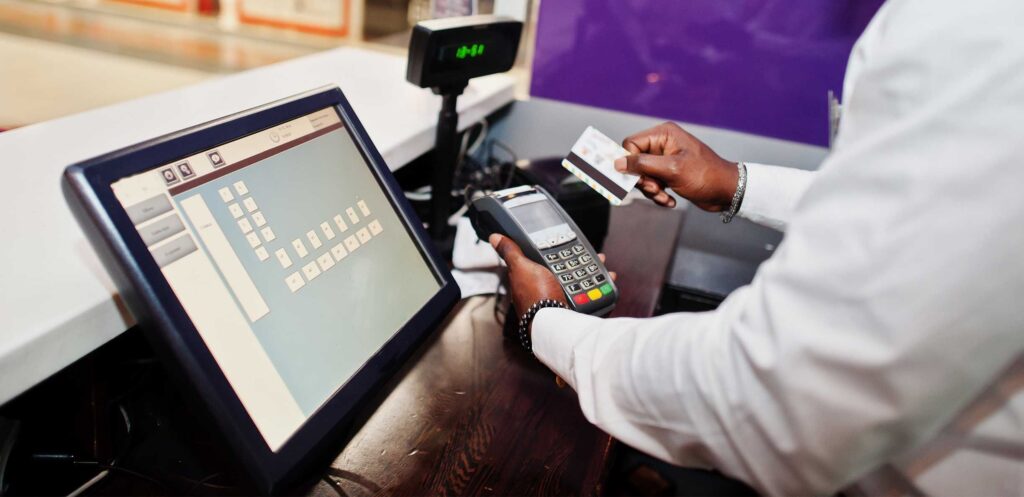The Environmental Benefits of Digital Receipts in POS Systems

As businesses strive to become more sustainable, one seemingly small yet impactful innovation is the adoption of digital receipts through modern POS (Point of Sale) systems. Traditionally, receipts have been printed on thermal paper, contributing significantly to waste and environmental degradation. Digital receipts, on the other hand, provide a paperless alternative that aligns with eco-friendly business practices.
In this blog, we’ll explore how digital receipts not only benefit the environment but also contribute to a business’s operational efficiency and customer satisfaction.
1. Reducing Paper Waste
Paper receipts generate a staggering amount of waste. Globally, millions of receipts are printed daily, many of which are discarded within minutes of being issued. According to environmental studies, billions of pounds of receipt paper are produced annually, contributing to deforestation and landfill waste.
Digital receipts eliminate the need for printed paper entirely. Instead of handing out a physical slip, businesses send receipts via email, text, or app notifications, reducing reliance on paper and minimizing waste accumulation.
2. Eliminating Toxic Chemicals
Most printed receipts use thermal paper, which contains Bisphenol A (BPA) or Bisphenol S (BPS). These chemicals are harmful to both human health and the environment:
- Health Risks: BPA and BPS can seep into the skin upon contact, posing risks of hormonal disruptions and other health issues.
- Environmental Impact: When disposed of, receipts containing BPA or BPS release these toxins into the soil and water, causing pollution.
Digital receipts eliminate the production and disposal of toxic thermal paper, making them a safer alternative for employees, customers, and the planet.
3. Conserving Natural Resources
The production of thermal paper involves significant consumption of water, energy, and raw materials such as wood. Additionally, the manufacturing and transportation of paper receipts contribute to carbon emissions. By adopting digital receipts, businesses reduce the demand for these resources, supporting global conservation efforts.
4. Reducing Carbon Emissions
The lifecycle of paper receipts—from production to disposal—leaves a considerable carbon footprint. Factors contributing to this include:
- Manufacturing: Energy-intensive processes release greenhouse gases.
- Transportation: Delivering receipt rolls to businesses adds to fuel consumption.
- Disposal: Incinerating or landfilling receipts releases more carbon dioxide.
Switching to digital receipts significantly reduces these emissions, helping businesses align with carbon-neutral goals.
5. Supporting a Circular Economy
Digital receipts promote a circular economy by minimizing waste and maximizing resource efficiency. Unlike paper receipts that are single-use and non-recyclable, digital alternatives can be reused in various ways, such as for returns, exchanges, or tax filing, without generating physical waste.
6. Raising Environmental Awareness Among Customers
Adopting digital receipts also sends a powerful message to eco-conscious customers. Consumers increasingly prefer businesses that demonstrate sustainability efforts. Offering digital receipts allows businesses to showcase their commitment to reducing environmental impact, enhancing their brand image and building customer loyalty.
7. Enhancing Operational Efficiency
Beyond environmental benefits, digital receipts simplify business operations. POS systems that support digital receipts:
- Save Costs: Eliminate the recurring expense of paper rolls and printer maintenance.
- Streamline Processes: Automate receipt delivery, saving time for employees.
- Enable Data Collection: Capture customer emails or phone numbers for marketing and loyalty programs.
These efficiencies not only benefit the environment but also contribute to a business’s bottom line.
Case Study: Businesses Leading the Way
Many companies have already embraced digital receipts to promote sustainability:
- Apple: Offers email receipts exclusively, aligning with its broader environmental goals.
- Starbucks: Provides app-based receipts for mobile orders, reducing the need for printed paper.
- Local Small Businesses: Increasingly use mobile POS systems with digital receipt functionality, reducing their carbon footprint.
These examples show how businesses of all sizes can leverage digital receipts to make a meaningful environmental impact.
Challenges and Solutions
While digital receipts offer numerous advantages, some challenges remain, such as:
- Customer Adoption: Not all customers are comfortable providing email addresses or phone numbers. Businesses can address this by educating customers on privacy policies and offering secure options.
- Technical Barriers: Smaller businesses might hesitate to invest in digital POS systems. However, the long-term cost savings and environmental benefits outweigh the initial investment.
Conclusion
Digital receipts are a simple yet powerful way to reduce environmental impact, conserve resources, and promote sustainability in business operations. By eliminating paper waste, toxic chemicals, and carbon emissions, they contribute to a healthier planet while offering businesses operational advantages.
As more companies adopt this eco-friendly practice, they not only play a role in protecting the environment but also resonate with the values of modern, environmentally conscious consumers. Switching to digital receipts is a win-win solution that benefits both the planet and the business.
It’s time to go paperless and embrace the future of sustainable commerce!
Visit our site at www.dibtech.com.au
Visit our YouTube channel for tutorials Dibtech






